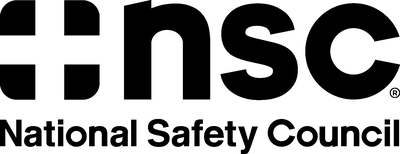National Safety Council Commemorates MSD Pledge Anniversary by Sharing Insights and Actions Along the Journey to Reducing the Most Common Workplace Injury
More than 160 organizations – representing 2.7 million employees – join movement to improve safety for workers worldwide and decrease musculoskeletal disorders by
To commemorate this milestone, the Council's MSD Solutions Lab, a groundbreaking initiative established in 2021 with funding from Amazon (NASDAQ: AMZN) to solve workplace MSDs, Thursday hosted its second annual Workplace Safety Summit: Insights and Actions to Prevent the Most Common Injury on the Job. During the summit, a keynote address was given by the Director of the National Institute for Occupational Safety and Health Dr. John Howard on the future of workplace safety, and NSC leaders and MSD Pledge members Pacific Gas and Electric Company, L&F Distributors and Nelson Brothers, reflected on progress made towards the collective pledge goal of reducing MSDs by
- Organizations that consider many MSD risk factors and rely on standardized assessment tools and data to determine where safety improvements need to be made are generally more successful in MSD risk reduction than organizations that do not engage in these practices.
- Larger organizations are generally more effective at mitigating MSD risk, as they are more likely to have mature, long-standing safety programs, and resources to adopt more complex MSD solutions and technology. In contrast, the average small to medium sized business established their safety program in the last five years.
- Organizations that regularly involve frontline workers in workplace decision making have stronger safety cultures than those organizations that do not engage their frontline workers as frequently.
- Nearly
90% of organizations have methods in place to share MSD solutions internally – either through word of mouth or more formal initiatives, like ergonomic challenges or fix-a-thons – yet just over half of organizations are able to disseminate their solutions externally. - Just a third of organizations are currently using technology to prevent MSDs, potentially indicating gaps in both knowledge and access to safety innovations.
- No organization earned a perfect score on the index, underscoring the complexity of MSDs and their prevention.
"MSDs are pervasive injuries with a far-reaching impact that extends well beyond an organization's bottom line, and while NSC was among the first to sound the alarm on this issue, we are proud to stand together with many others now in solving it," said Lorraine Martin, NSC president and CEO. "By shining a light on these serious injuries, and how to best prevent them, we're making sure that every employee has an opportunity to work in an environment where their safety is valued, so they can live their fullest lives on and off the clock – this National Safety Month, and every month."
"The safety and health of our employees is a priority we all share and one we are committed to advancing through the MSD Pledge," said Carla Gunnin, director of Global Governance and External Affairs for Workplace Health and Safety at Amazon. "Together, with this growing community of pledge members, business leaders and safety experts, we have the ability to share best practices and learn from one another so we can effectively evaluate and minimize MSD risk."
The MSD Pledge represents a first-of-its-kind commitment from employers to create safer outcomes for workers worldwide. Since being introduced last year, MSD Pledge membership has increased ten-fold to include several large global companies and many small and medium-sized organizations, such as Ansell Inteliforz, Boeing, Concentra, Cummins, Durable Surfaces, John Deere, Tenneco, and United Airlines, and accounts for 2.7 million employees across many industries and sectors.
"Nothing is more important than supporting the health and safety of our clients and their employees," said Giovanni Gallara, chief clinical services officer at Concentra, "which is why we are so proud to be a part of the MSD Pledge community at the forefront of solving one of the biggest workplace safety challenges. Despite their prevalence, MSDs can be prevented and together, with other leading organizations through the pledge, we are better positioned to continue advancing ergonomic and worker health research and integrating new solutions to keep workers across our enterprise and beyond safe."
MSDs include injuries such as tendinitis, back strains and sprains, and carpal tunnel syndrome. In addition to participating in the MSD Solutions Index, organizations signing the MSD Pledge commit to analyzing the causes of MSD injuries and investing in solutions that reduce risks to workers.
"As a foreman, my responsibility is to ensure crews get the job done on time and do so in a way that puts safety first, whether that means helping them take advantage of new safety technologies available to us or encouraging individuals to speak up if they're feeling fatigued," said Hunter Lentz, Durable Surfaces frontline employee. "Workplace safety isn't just a promise that can live on paper or be covered every now and again in a company presentation. Putting your safety culture into action requires trust, communication and relationship-building that starts at the very top and trickles down to every part of the organization. I'm proud to work for a company like Durable Surfaces that 'gets it,' by listening to and engaging employees along every step of the safety journey."
The MSD Pledge is one of several initiatives underway by the MSD Solutions Lab to solve MSDs before they start, including an advisory council, MSD pioneering research, innovation challenges, and grant program.
To learn more about the MSD Pledge, the MSD Solutions Lab, and the risks associated with MSDs, visit www.nsc.org/msd.
About the National Safety Council
The National Safety Council is America's leading nonprofit safety advocate – and has been for nearly 110 years. As a mission-based organization, we work to eliminate the leading causes of preventable death and injury, focusing our efforts on the workplace, roadway and impairment. We create a culture of safety to not only keep people safer at work, but also beyond the workplace so they can live their fullest lives.
Connect with NSC:
Facebook
Twitter
LinkedIn
YouTube
Instagram
![]() View original content to download multimedia:https://www.prnewswire.com/news-releases/national-safety-council-commemorates-msd-pledge-anniversary-by-sharing-insights-and-actions-along-the-journey-to-reducing-the-most-common-workplace-injury-301851660.html
View original content to download multimedia:https://www.prnewswire.com/news-releases/national-safety-council-commemorates-msd-pledge-anniversary-by-sharing-insights-and-actions-along-the-journey-to-reducing-the-most-common-workplace-injury-301851660.html
SOURCE National Safety Council








